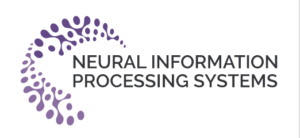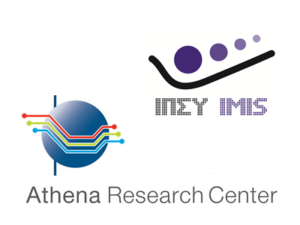 HCA-DBSCAN: HyperCube based Accelerated Density Based Spatial Clustering for Applications with Noise
HCA-DBSCAN: HyperCube based Accelerated Density Based Spatial Clustering for Applications with Noise
Sets and Partition Workshop at NeurIPS 2019. PDF
We propose a new clustering algorithm which can significantly reduce the computational complexity of the DBSCAN algorithm while maintaining its accuracy. We achieve an execution time speedup of up to 57% with the proposed algorithm.
Paper presented at NAACL-Textgaphs workshop, New Orleans, US. PDF
We presented an efficient approach to perform word sense disambiguation for polysemous words. In plain speak: How can a system understand what ‘sense’ of a word is being used in a given context (bank the financial institution or a river bank). Our work was featured on the university website and got talked about in the press. Press Release
 Boomerang:Rebounding the Consequences of Reputation Feedback on Crowdsourcing Platforms- Stanford Crowd Research Initiative.
Boomerang:Rebounding the Consequences of Reputation Feedback on Crowdsourcing Platforms- Stanford Crowd Research Initiative.
Paper presented at 29th ACM User Interface Software and Technology Symposium (UIST), Tokyo, Japan. PDF
We introduce Boomerang, a reputation system for crowdsourcing platforms that elicits more accurate feedback by rebounding the consequences of feedback directly back onto the person who gave it.
Paper presented at the IEEE International Conference on Contemporary Computing and Informatics. PDF
We perform various Natural Language Processing (NLP) tasks to analyze the intelligence of Microsoft’s Tay twitter bot and propose a generic metric to compare intelligence of bots.
Accepted at the 5th Edition Of The Collective Intelligence Conference. PDF
We introduce the Daemo constitution, a governance document designed to create a formal process for paid crowdsourcing marketplaces that allows and manages operational changes, driven by its users’ preferences.
 PoDAS: Sensor network based detection and analysis of potholes for real time data using mobile devices
PoDAS: Sensor network based detection and analysis of potholes for real time data using mobile devices
International Conference on Innovative Research in Engineering and Science (IRES2017) to be held on 16-17 June 2017 at AIT Bangkok. PDF
This paper proposes a novel low cost wireless sensors based end-to-end system called PoDAS (Pothole Detection and Analysis System) which can be deployed across major cities. We discuss multiple implementation models that can be varied based on the needs of individual cities. Our system uses cross validation through multiple sensors to achieve a higher efficiency than some of the previous models that have been proposed.
Preprints:
 The Rapidly Changing Landscape of Conversational Agents PDF
The Rapidly Changing Landscape of Conversational Agents PDF
This survey looks at the various advances in the field of conversational agents starting from rule-based systems to modern deep learning approaches.

